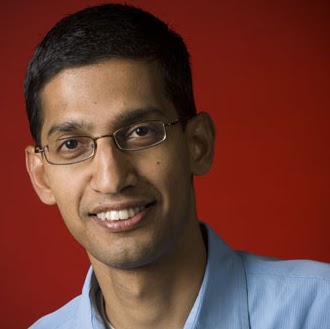Google’s Sundar Pichai spoke to Wired in an interview published today ahead of Google I/O this week, describing what it’s like to be taking the helm of both Android and Chrome going into the annual conference. Pichai took over for Andy Rubin, who stepped out of his role heading up Android back in March.
These days, he says not much has changed around his thinking about Chrome and Android, but he did have some statements about the open nature of Android that rang more sincere than most statements from Google execs on that aspect of the business, which is usually referred to as an impossibly good thing.
Open Is Great, But…
Pichai reiterated the company’s general love for the “open” nature of Android, but he also brought up the very real ways in which it limits Google’s ability to provide a consistent and recognizable experience to all users of its mobile OS.
“Here’s the challenge: without changing the open nature of Android, how do we help improve the whole world’s end-user experience?” Pichai told Wired when asked about the biggest challenge facing Android. “For all your users, no matter where they are, or what phone or tablet they are buying or what tablet they are buying.”
It was a theme that Pichai came back to again and again, when discussing how Facebook Home has changed the OS experience at a basic level and what Google felt about that. He said that Facebook Home is “exciting,” while disagreeing diplomatically with it from a central philosophical standpoint, explaining that he believes people aren’t at the center of the experience in his mind. Once again in relation to Facebook Home, Pichai talked about the challenges of providing a universal experience to users.
“We want to be a very, very open platform, but we want a way by which end users are getting a good experience overall,” he said in the interview. “We have to figure out a way to rationalize things, and do it so that it makes sense for users and developers. There’s always a balance there.”
Finally, Pichai talked about the different issue of forking Android entirely, and discussed how Google feels about that.
“In general, we at Google would love everyone to work on one version of Android, because I think it benefits everyone better,” he told Wired. “But this is not the kind of stuff we’re trying to prevent.”
This is possibly the most frank anyone at Google has been about how the company views these tangential efforts. Google accepts them, because that’s the nature of the open approach it took when it started out with Android, an approach that helped it win over carriers and OEMs looking to do more than just provide an interchangeable vehicle for another company’s software and services. But Google is also frustrated by them, in that they splinter its efforts, ultimately resulting in Android fragmentation.
Google And Samsung = Microsoft And Intel
On the subject of the supposed Samsung/Google rift that many in the media suspect may be developing, Pichai echoed the company line and said that Google isn’t concerned about Samsung’s prominence in the overall Android ecosystem. He basically said that Samsung has been instrumental in helping push the technology forward for both companies.
Samsung’s relationship with Google is like that of other “long stable structures” found throughout the industry, Pichai said, pointing specifically to the relationship between Intel and Microsoft. Microsoft and HP would be another key example of a long-prosperous combination that never destabilized because of one party craving too much influence over the other. One could argue that the Android ecosystem is a different beat, with Samsung having much more power than any one partner that Microsoft ever had, but that’s hard to quantify.
Google I/O May Be Light On New Stuff
Pichai also seemed keen to take the wind out of people’s sails regarding what’s coming up at Google I/O, which takes place this week Tuesday through Friday in San Francisco. He said that the event will be very much developer focused, especially since it’s not timed around any major product announcements.
“It’s not a time when we have much in the way of launches of new products or a new operating system,” he said to Wired. “Both on Android and Chrome, we’re going to focus this I/O on all of the kinds of things we’re doing for developers, so that they can write better things. We will show how Google services are doing amazing things on top of these two platforms.”
Rumors suggest we might see an updated Nexus 7 and possibly a Nexus 4 with new features like LTE connectivity, but those could be considered minor enough.
Chrome And Android
The biggest takeaway from Pichai’s talk with Wired was that he clearly loves both of his children equally. He resisted multiple attempts by Levy to pit the two against one another, and to point one as unnecessary in the face of the other. Pichai didn’t seem like a man running two horses with the intent of picking the winning one late in the game; Chrome and Android both came off as equally worthy pursuits that Google intends to continue for different but equally valid purposes. That could be why we’re hearing that Android-powered notebooks are on the way, as well as Chrome-powered tablets.
It’ll be interesting to see if Pichai gives both equal billing at the Google I/O keynote, too, which takes place at 9 AM PT on Tuesday morning. We’ll be there covering the action, so tune in to see how it shakes out.
